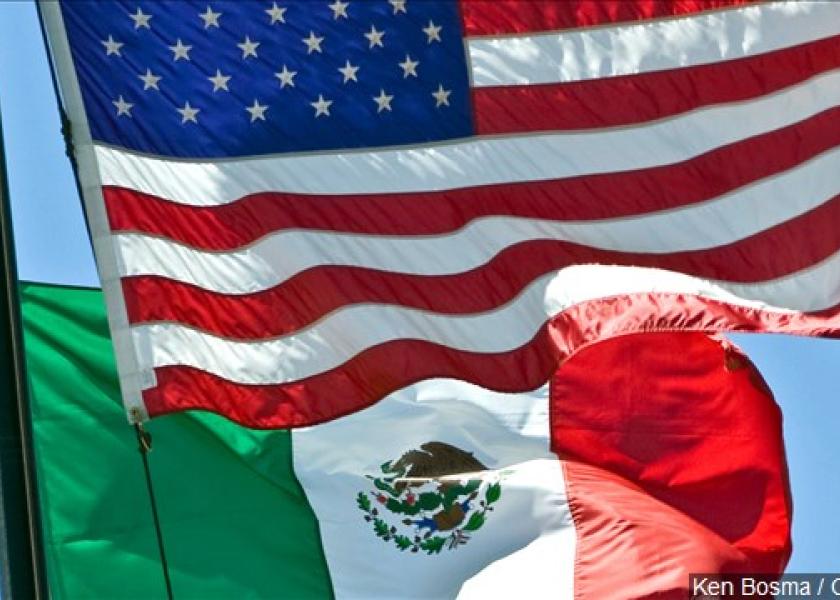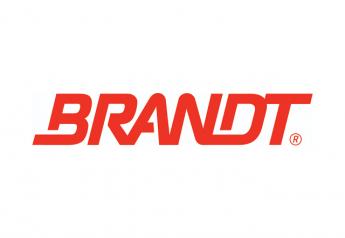Trump Announces Trade Deal With Mexico, Says He'll Ditch NAFTA

by Eric Martin, Jennifer Jacobs, Josh Wingrove and Andrew Mayeda
(Bloomberg) -- President Donald Trump said he would terminate the North American Free Trade Agreement and sign a new trade accord with Mexico, potentially leaving Canada out of the bloc.
Trump announced the agreement with Mexico in a hastily arranged Oval Office event Monday with Mexican President Enrique Pena Nieto joining by conference call. Pena Nieto said he is “quite hopeful” Canada would soon be incorporated in the revised agreement, while Trump said that remains to be seen.
Trump said he would speak with Canadian Prime Minister Justin Trudeau “in a little while” and hoped to begin negotiations with him “almost immediately.”
As he announced the move, Trump said he would drop the name Nafta from the accord because of its unpopularity.
“We’re going to call it the United States/Mexico Trade Agreement,” he said. Nafta “has a bad connotation because the United States was hurt very badly by Nafta for many years.”
The president hailed the Mexico agreement as “a big day for trade.”
The peso rose ahead of Trump’s remarks. U.S. stocks also advanced, with auto suppliers and rail companies among the top gainers.
There is no deal reached yet with Canada, people familiar with the agreement said. The northern neighbor has been on the sidelines of the talks since July as Mexico and the U.S focused on settling differences.
A spokesman for Canadian Foreign Minister Chrystia Freeland issued a statement on Monday that warned against jumping to conclusions. “Canada’s signature is required,” spokesman Adam Austen said in an email. “We will only sign a new Nafta that is good for Canada and good for the middle class” and “we will continue to work toward a modernized Nafta.”
Nieto said in a tweet on Monday that he spoke with Trudeau and stressed the importance of Canada rejoining Nafta talks.
Bilateral Pact
Still, an accord between the U.S. and Mexico is the biggest development in talks that began a year ago, punctuated by Trump’s repeated threats to quit altogether. Significant breakthroughs came during the past several days of bilateral talks on automobiles and energy. The three countries trade more than $1 trillion annually, much of it under the pact.
There is one difference left to iron out, Mexican Economy Minister Ildefonso Guajardo told reporters early on Monday as he entered the Washington office of the U.S. Trade Representative’s office where negotiations are going on. He declined to identify the issue.
Canada Approval
Talks to update Nafta began a year ago, but in recent weeks have been held between just the U.S. and Mexico. The U.S. president says the deal has led to hundreds of thousands of lost American jobs, and he promised to either change it to be more favorable to the U.S., or withdraw.
The U.S. push to finish Nafta talks comes at the same time it’s in a spiraling trade war with China, and has threatened to place tariffs on cars imported from major manufacturing centers in Asia and Europe -- efforts that have created new uncertainty for many businesses and investors.
Talks between the U.S. and Mexico had focused largely on cars. The U.S. wanted to bring back auto manufacturing jobs that had gone to Mexico. The countries are said to have agreed that automakers who don’t comply with the new Nafta rules will pay a 2.5 percent tariff, the same as they would if they skirted the existing Nafta, while any new Mexican plants wouldn’t have a guarantee. That could potentially expose them to U.S. auto tariffs of between 20 percent and 25 percent, which Trump is considering under national security grounds. The new rules would also likely require key components to have more domestic content.
Jesus Seade, the Nafta representative for Mexican president-elect Andres Manuel Lopez Obrador, has predicted that the nations will agree on a softened version of a so-called “sunset clause,” an automatic expiration after five years -- a key U.S. demand. The recent push for a deal is in part to have it signed before the new president takes office in December.
That would be essential, as the sunset clause was a major sticking point -- erupting, for instance, at the Group of Seven summit in June. Other key issues are Chapter 19 anti-dumping panels, which the U.S. wants to kill but which may be a deal-breaker for Canada, as well as Canada’s protected dairy sector, which Trump is targeting to dismantle.
How quickly Canada will rejoin talks remains unclear, Canada’s Freeland is in Europe this week. Even once Canada agrees, any Nafta deal between the three countries would have to be ratified. Timelines set out under U.S. trade law mean that would almost certainly be done by the next U.S. Congress, raising the prospect of further hurdles.
© 2018 Bloomberg L.P







